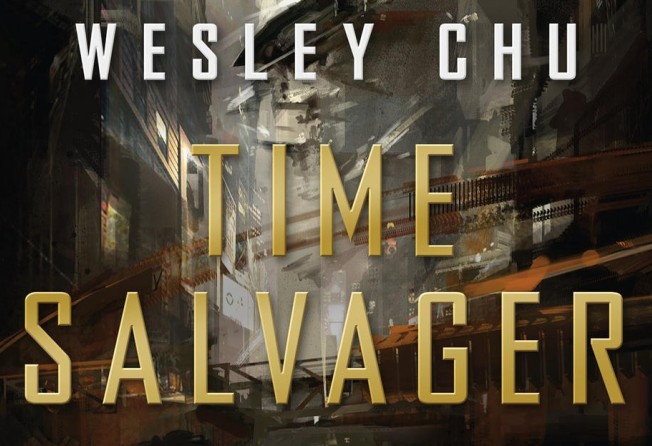
Book review: Time Salvager - set in a dystopian far-future world
Wesley Chu conjures a run-down, dingy, civilisation reminiscent of Philip K. Dick, but the comparison ends there; his characters are flat and his set pieces genre-laden



The ship passes quickly out of the story, but the clichés stand their ground. The world of Time Salvager is not vividly imagined or distinctive; instead it's slapped together from old, banged-up genre tropes and narratives. In part, this is a function of the fact that Time Salvagers' world is, even by its own lights, a mess. It is a run-down, dingy, far-future civilisation reminiscent of many of Philip K. Dick's schlubby dystopias. Humanity is out of energy, food and resources; everything is slowly crumbling into "an enroaching plague of s***". In the face of this disintegration, humanity relies on time-travelling Chronmen to raid the past for technology, fuel and food, providing stop-gap salvage until someone, somehow, can figure out how to rebuild the world permanently.
This conceit offers a cornucopia of genre set pieces. There's a trip to the Nazi era. There's a reference to artificial intelligence wars, which you know all about because you've seen Terminator. There's an Orwellian thought-control period that references Big Brother by name.
The flatness extends to the characters, too - for example, the spunky red-haired scientist named Elise. She's the novel's strong female character and Manic Pixie Dream Girl, whose purpose is to provide the predictably wounded hero James with light and hope.
While the lack of imagination isn't exactly enjoyable, it is thematic. Chu is, after all, just doing what his Chronmen do - raiding the past to build a clunky present.
Time Salvager can be read as a metaphor for our entire media landscape. The future - our future - doesn't invent anything any more; it just cannabilises geriatric icons. In Time Salvager you don't have anything to build the future on except the past.
Chu's novel isn't a great book, but it cobbles together an unsettling message. The future, in Chu's vision, appears less like a glittering possibility and more like a shoddy retread. The best stories have already been told. All that's left is to cut them up for scrap.
Time Salvager by Wesley Chu (Tor Books)
The Guardian